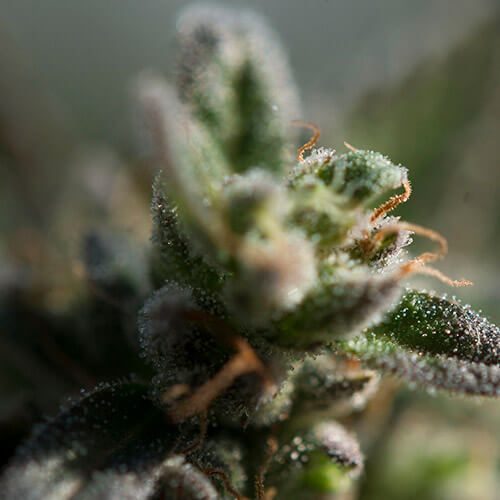Weed, sometimes referred to as marijuana, cannabis, or by many other names, has long been a contentious topic. How long cannabis remains in your system is one important topic that is frequently discussed. Not only is this information necessary for personal awareness, but it’s also necessary for legal and professional reasons.
Weed: What is it?
The dried leaves, flowers, stems, and seeds of the Cannabis sativa or indica plant are referred to as weeds. Legality varies worldwide; historically, it has been used for both medicinal and recreational purposes.
How Weed Works in the Body
Tetrahydrocannabinol, or THC, is the main psychoactive ingredient in marijuana. After being consumed, THC interacts with the brain to influence mood, memory, and other mental processes.
Weed Detection Time in Various Drug Tests?
The time it takes to detect weed varies depending on the type of drug test administered.
- Weed urine test: THC can be detected in urine for up to 30 days.
- Weed blood test: Blood can detect THC for one to two days, according to a weed blood test.
- Weed hair follicle test: THC can be detected with the weed hair follicle test for up to 90 days.
- Saliva Test: Saliva contains THC for one to three days, according to a cannabis saliva test.
Factors Affecting Weed Detection?
Several factors influence Weed detection, including:
- Frequency of use: Regular users will have a longer detection window.
- Body fat: THC is fat-soluble and stored in fat cells.
- Metabolism: A faster metabolism can reduce the detection time.
- Overall health: Hydration and diet can also impact THC metabolism time.
- THC potency: higher potency products lead to longer detection times.
6 Factors That Influence How Long Does Weed Stay in Your System?
- Frequency of Use: Regular use extends the weed detection times.
- Body Fat Percentage: Higher body fat can result in a longer THC half-life.
- Metabolic Rate: A faster metabolism leads to a quicker weed clearance rate.
- Hydration Levels: Good hydration helps speed up the weed elimination process.
- Exercise: Regular exercise can influence the cannabis detection window.
- THC Potency: Stronger strains can extend the THC detection time.
What are Effective Marijuana Detox Methods?
To pass a marijuana weed test, various marijuana detox methods are available, such as detox drinks, supplements, and natural methods like hydration and exercise.
How Long Does Weed Stay In Your System? A Few Factors
Several factors have an impact on how long Weed stays in the body:
- Metabolic Rate: A higher metabolism can shorten the weed detection time.
- Frequency of Use: Regular use extends the duration cannabis stays in your system.
- Body Composition: Higher body fat can store THC longer.
- Strain Potency: Stronger strains result in longer detection times.
What are the Common Methods to Detect THC?
The most common methods to detect THC are through urine, blood, saliva, and hair follicle tests, each with different detection windows.
How Long Does Weed Stay in Your Blood?
The duration of a cannabis blood test varies depending on the user’s habits. For infrequent users, cannabis can usually be seen in blood tests for one to two days after use. However, with regular or intensive use, the detection window can grow significantly. Chronic cannabis users may have measurable levels of THC in their bloodstream for up to 25 days following their most recent intake, according to a study by Therapeutic Drug Monitoring. This prolonged period of detection emphasises how persistent cannabis substances are among habitual users.
How Long Does Weed (Marijuana) Stay in Your Urine?
The frequency and intensity of marijuana usage have a considerable impact on how detectable it is in urine. The time frame for marijuana detection in urine can vary from a few days to several weeks after the last use, depending on the user’s intake amount, according to the Mayo Clinic Proceedings on urine drug tests. The following are general recommendations regarding detection times:
The product remains identifiable for up to three days following a single use.
- Moderate use (about four times a week): Detectable 5-7 days after the previous use.
- Chronic use (daily): Detectable 10-15 days after the last use.
- Chronic heavy use (multiple times daily): Detectable for up to 30 days after the last use.
Urine testing is the most widely used technique for determining whether marijuana is present, according to MedlinePlus. The fact that this method works well for determining recent to fairly recent marijuana consumption across a variety of usage patterns is probably the reason it is so widely used.
Saliva Tests for Detecting Weed?
For immediate drug assessments, weed saliva tests are widely used, particularly in roadside driver testing. When used within a specified window, this approach works well for detecting recent cannabis usage. Saliva tests can usually detect the presence of cannabis in a person’s system 24 to 72 hours after their last usage. Because of their limited detection window, saliva tests are useful for determining recent cannabis use. This is especially important in situations involving road safety and quick sobriety checks.
Weed Hair Follicle Tests
Another way to identify marijuana is through weed hair follicle tests, which take advantage of the fact that THC, the psychoactive ingredient in cannabis, may enter hair follicles through the circulation. This kind of test can detect marijuana residues for a long time, possibly up to 90 days after the last usage.
It’s crucial to remember, though, that hair tests are typically regarded as less accurate than other cannabis drug testing methods, such as urine or saliva tests. One major worry with hair testing is the possibility of false-positive results. For example, THC residues can be transferred onto hair strands through physical contact with surfaces or people who have handled cannabis, as well as inhaling secondhand marijuana smoke. Even if the test subject hasn’t used marijuana directly, unintentional contamination may result in a positive test result. This portion of hair testing needs to be carefully considered, especially in situations where it’s critical to accurately detect cannabis use directly.
Impact of Weed on Different Individuals
Individuals react differently to weed based on their metabolism, body composition, and frequency of use. These factors significantly influence how long THC stays in the body and affect the weed clearance rate.
Are There Any Legal or Employment Issues with Weed Use?
In many regions, employers conduct marijuana drug tests, and legal repercussions can follow a positive result. Understanding THC detection time is vital for compliance with workplace policies and legal standards.
Detoxify and Reduce Weed Detection Time?
While some advocate for natural marijuana detox methods, their efficacy is often debated. Effective weed detox tips can vary, but hydration, exercise, and proper nutrition can influence the weed elimination process and reduce THC detection time.
The Medical Perspective on Weed Consumption and Detection
Healthcare professionals advise considering the impact of weed consumption on health and detectability. They emphasise the importance of understanding THC metabolism time and THC levels in the body for informed medical advice.
What are The Social and Psychological Impacts of Weed Use?
Societal views on weed usage vary widely, as do the psychological effects of its use and detection. Understanding these impacts can assist in managing the social and psychological aspects of cannabis use and its consequences.
Is Weed Detection Similar to Other Substances?
When compared to substances like alcohol or tobacco, weed has a longer detection window. As a result, understanding the cannabis detection window and weed detection times is critical for managing its presence in the system.
What Are Common Myths and Misconceptions About Weed?
There are many myths and misconceptions about weed, including its effects and detection time. Clarifying these misconceptions is important for accurate knowledge and responsible use.
Conclusion
Understanding how long marijuana stays in your system is essential for personal, legal, and health reasons. Various factors affect its detectability, and it’s important to consider these alongside societal and health implications. By staying informed about THC detection time, cannabis urine analysis, and other testing methods, you can better manage your cannabis consumption and its implications.







